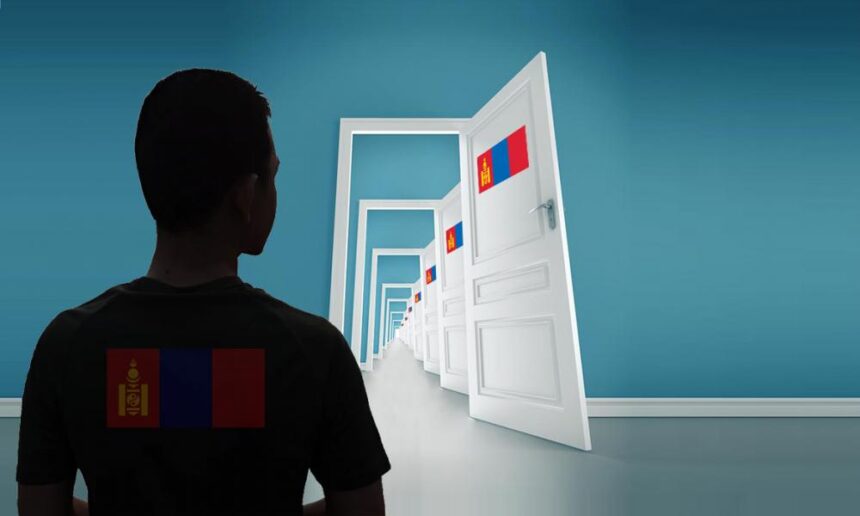It has been eight months since the world began its fight against the COVID-19 plague. Besides the impact on health, mankind continues to suffer from a loss of employment and livelihood. Thus far, 20 million people have been infected and 742,000 are deceased. The United States, the world’s most powerful country, accounts for a quarter of all cases and deaths.
Countries are exhausting their resources to combat the spread of the plague on a broad front. A total of 297 people has been infected in Mongolia so far, 269 of whom have been cured and no one died. All infected people came from abroad: three of them foreigners and the rest Mongolians.
The Ministry of Health issued the first warning about COVID-19 to the public in early January. In mid-February, the longest, 4,709-kilometer border with China was closed as well as all border crossings soon after. Both entry into and exit from the country was brought to a halt.
Human rights issue
The government’s sudden decision to close the border has left many families, students, and young people stranded abroad, separated from their families, without a chance to return home. The government organized more than 50 special duty flights. More than 16,000 people have returned to Mongolia from 49 countries since the border closure. As the pandemic continued, the number of Mongolians requesting repatriation has risen from 3,000 in March to 11,000 in August. The national airline MIAT operated special flights to countries such as the United States and Australia, where it has never flown before.
Since hundreds of Mongolians in numerous countries are living in dire conditions without money or housing, citizens are demanding immediate help and repatriation from the government. Together, they formed a movement called ‘Stranded Mongolians.
The movement emphasizes that the fundamental rights of the minority are being violated in order to protect the interests of the majority. Article 13.2 of the Universal Declaration of Human Rights states that “Everyone has the right to leave any country, including his own, and to return to their country”. According to our Constitution, a person’s right to freedom of movement can be temporarily restricted by law only in the event of a state emergence. However, in Mongolia the state of emergency never has been declared. The movement says, “If the government lacks money, cut the budget expenditures, postpone the construction of monuments, and bring back your people quickly”. All citizens support this proposal as well.
The suffering of a poor country
The government also intends to return its citizens as soon as possible. Our government is also seeking help from the countries to which more chartered flights shall commence.
The policy prioritized the repatriation of the critically ill, pregnant women, mothers with babies, and the elderly, on special duty flights. Lists are formed before departure, people are being tested for the virus as thorough as possible, monitored during the flight, and isolated for 21 days after arrival in the country, whereas infected ones are receiving treatment. The main reason for insisting on 21 days of isolation instead of 14, as in other countries, and an additional 14 days self-isolation at home, is the fact that on the 18th day, several people were tested positive for the virus.
There are not enough accommodations for many people at once, specifically, we have very few beds that meet the special requirements for the people who have been infected. The National Center for Communicable Diseases, the only specialized hospital, has 250 beds. Located next to it is “The Bio Safety Lab 3”, which has been under construction for 5 years and if completed, could add 60 beds. If the plague spreads domestically such as in other countries, hundreds of people will be infected at the same time, and the above-mentioned dedicated hospital will only have the capacity to take 310 people. Certainly, state, city, aimag, and district hospitals will be mobilized. However, their staff shall also be trained. Half of the 200 doctors who are operating now, had been trained only recently. We truly appreciate the fact that they are patiently wearing protective clothing for as long as possible, and doing their job diligently, both on plane and in hospital.
Everyone coming to Mongolia pays 50,000 MNT ($ 17.5) per day for separate accommodation and food, which does not cover the actual cost. Some accommodation facilities are in poor condition. The payments need to be more flexible; accommodations need to be categorized and made optional. Hotels are also be widely involved in isolation.
Citizens and businesses have launched a donation campaign. The State Special Commission announced that it received 7.4 billion MNT in donations and spent it all. Citizens are waiting for the Ministry of Health to disclose its report on the use of 775 million MNT in donations and foreign aids. The government has suspended some investments and submitted a draft to the Parliament to amend the state budget for 2020 in which the health care funding has been raised by 118 billion MNT.
It is the duty and responsibility of everyone in the country and of those stranded abroad, to understand the realities and to protect and prevent themselves from an infection to the best of their ability.
2020.08.13
Trans. by Riya.T and Sungerel.U












